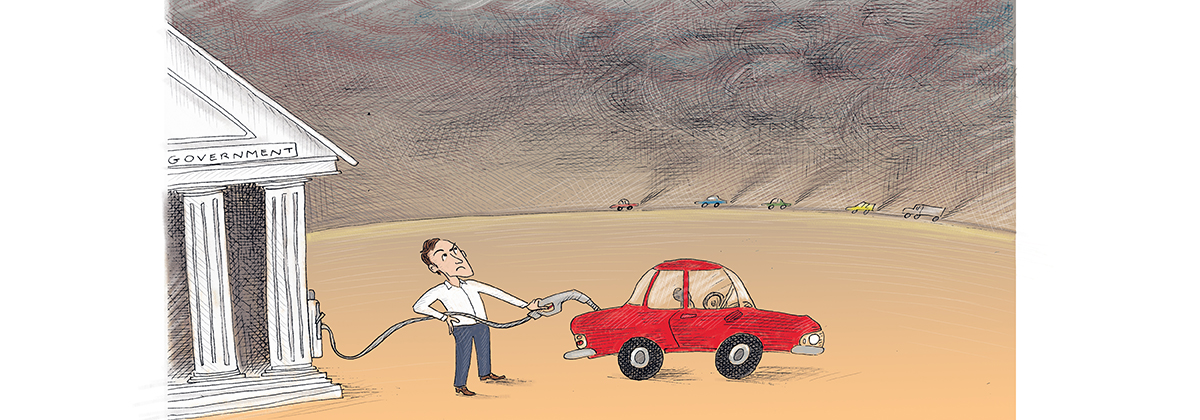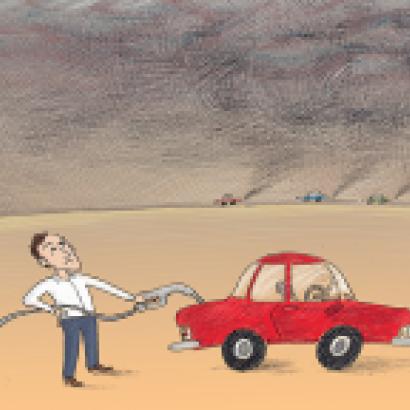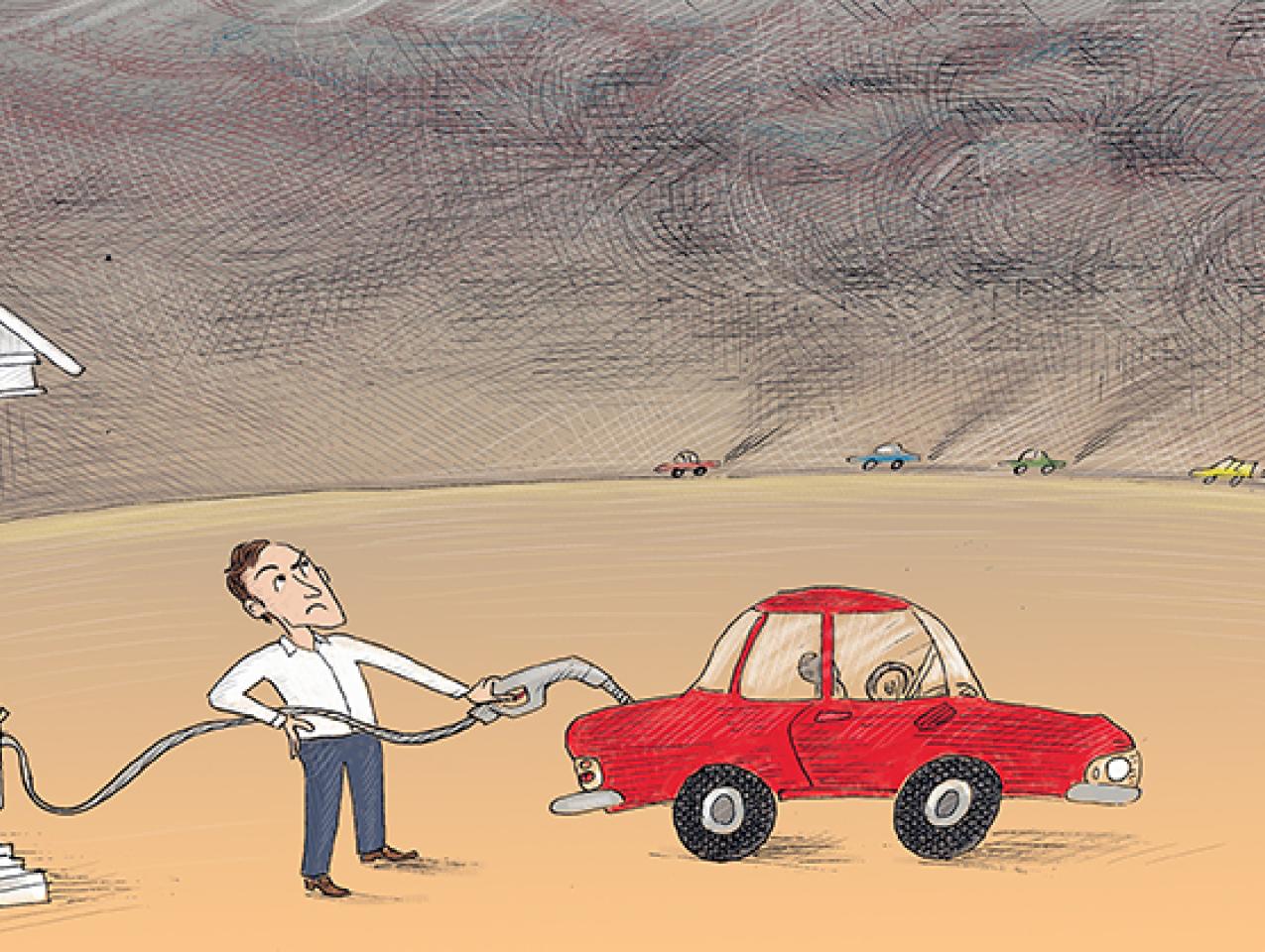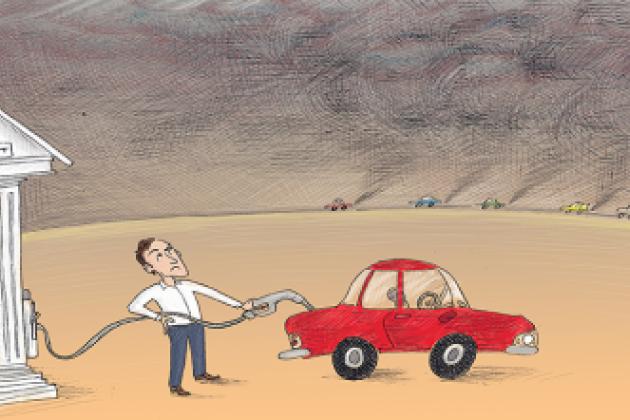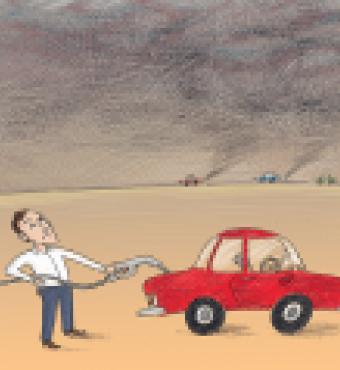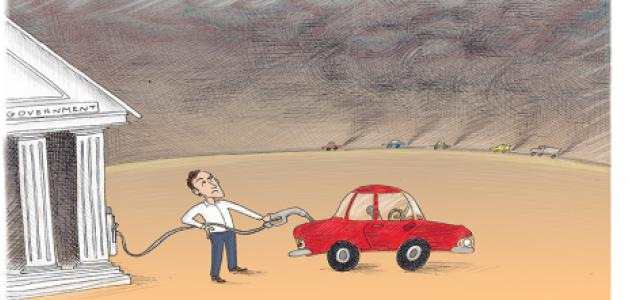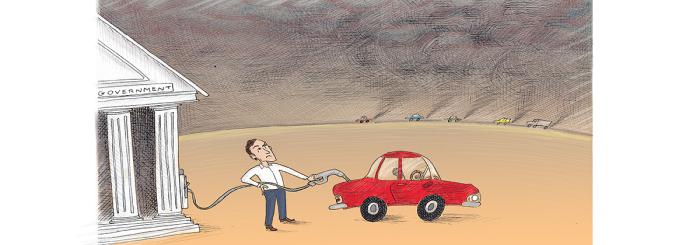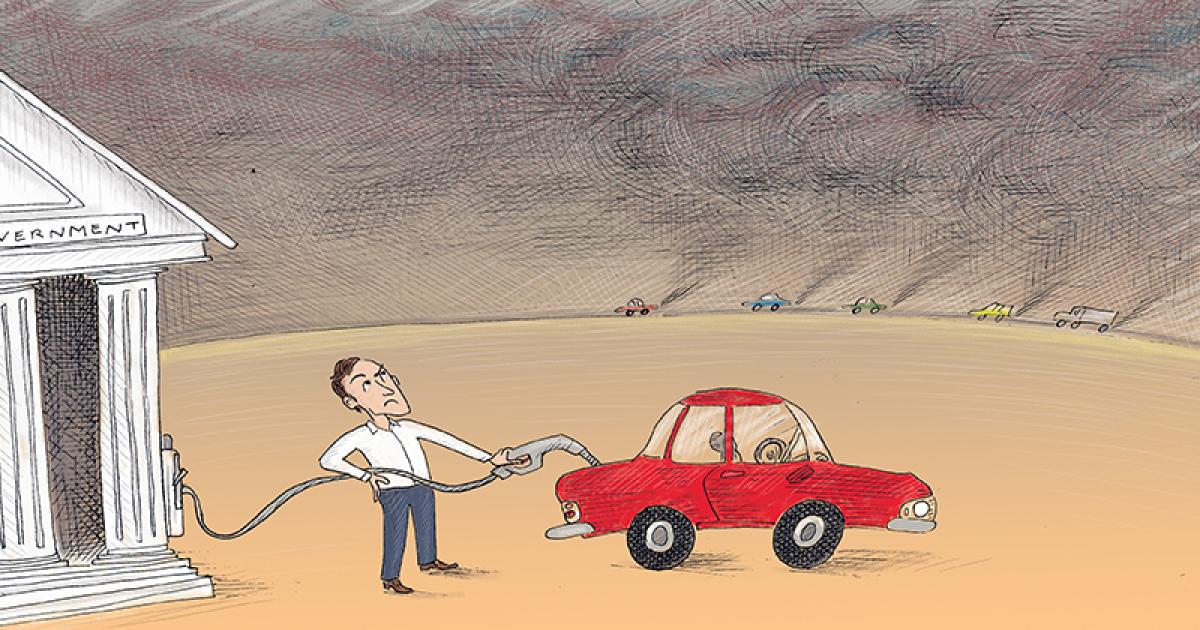- Energy & Environment
Adam Smith in his 1759 Theory of Moral Sentiments and F.A. Hayek in his 1988 treatise on socialism warned against the “fatal conceit” of government planners who believe they can direct an economy as a chess master moves pieces on a chessboard. Such planners fail to understand that, unlike chess pieces, the millions of actual consumers and producers they wish to control act in their own self-interest with results quite different from those anticipated by government.
The collapse of the Soviet economy proved the folly of planning an entire economy, but today’s advocates of industrial policy and state capitalism continue its tradition. They believe that government interventions can avoid or correct the mistakes of “chaotic markets.” Unlike private companies preoccupied with competition and survival, government planners claim to have the foresight to pick future winners and to direct resources their way.
The European Union’s (EU) “go diesel” initiative of the mid-1990s is a perfect example. After years of negotiation, most countries (with the exception of the United States) signed the Kyoto protocol in 1997, which pledged the industrialized world to binding reductions of greenhouse gases. To meet their pledged twenty percent reduction in emissions, EU environmental planners pushed car manufacturers to invest heavily in fuel-saving diesel technology. But mass markets would subsequently reject diesel-powered cars. Contrary to the planners’ expectations, the diesel initiative did not lower automobile-fuel use or reduce greenhouse gases. Rather, it blanketed cities with air pollution, destroyed the value of used diesels, set back Europe’s car manufacturers in the international competition for a clean and fuel-efficient car, and created a powerful pro-diesel lobby that continues to exercise influence on regulators and bureaucrats throughout the European Union.
The EU’s “go diesel” initiative shows that government planners could restructure an entire industry simply by manipulating taxes, regulations, and subsidies. In other words, they no longer must issue Soviet-style commands to get the changes they want. Consider that in 1990, the share of diesels in the EU and Japanese fleets was around ten percent each. In the U.S., diesel vehicles were a rarity. By the early 2000s, however, a whopping 60 percent of vehicles sold in the EU were diesels, while their shares of the Japanese and the American markets were negligible. Europeans bought diesels because the EU kept diesel fuel prices low and offered various incentives to buy diesels. Virtue signaling also helped: “Good” Europeans bought and drove diesels.
The diesel was winning in Europe but failing wherever free markets prevailed. In Europe, the pro-diesel initiative strewed a string of unanticipated consequences in its wake, to which we now turn.
Where were the national fuel savings from the Diesel?
A key factor behind Europe’s decision to “go diesel” was diesel’s apparently higher fuel efficiency. The logic was simple: If a diesel can drive twenty to thirty percent more per liter, the rise in the diesel share of Europe’s auto fleet would surely reduce Europe’s overall automotive fuel consumption. But such was not the case: Europe’s per capita fuel consumption has actually risen a quarter since 1990. There could be a number of explanations for this—rising income, changing driving habits, for instance—but government planners ignored the fact that lower diesel prices would make road travel cheaper and hence promote more driving and fuel consumption. A study by researchers at DIW Berlin, a think tank focusing on economic policy, found that German diesel drivers averaged almost fifty percent more kilometers per year than gasoline drivers. Diesel car owners used more transport fuel than gas drivers thanks to the state’s cut-rate diesel prices. When something is underpriced, we use more of it. Chalk one up to unanticipated consequence.
Where were the Kyoto climate gains from “go diesel?”
Europe’s elites seemed convinced that a switch from gas to diesel vehicles would also help save the planet from overheating. The EU’s Kyoto logic was similar to its reasoning on automotive fuel. The diesel used less fuel per kilometer. Driving more diesels would thus reduce Europe’s carbon footprint. The engineered switch from gasoline to diesel was clearly an integral part of the EU’s industrial-policy plan to meet its Kyoto targets.
Europe’s Kyoto signers apparently did not pay enough attention to the major automotive carbon dioxide emissions advances going on at the time. In fact, Toyota released its Prius as Kyoto was being signed in 1997. With advanced catalytic converters and other new technology, Japanese gasoline vehicles matched diesel greenhouse gas emissions (per kilometer driven) by 2005. Thereafter, Japanese gas cars had a small but distinct carbon dioxide advantage over European diesels. Studies have also shown that diesel cars now emit more greenhouse gases over their life cycle (from construction to scrapping) than gasoline cars.
Market economies spread out their bets over new technologies. Some companies will bet on diesel engines, others on gasoline, and still others on battery-powered vehicles. Those who make the right choice prosper, and society gains new technologies. European planners, not market forces, tilted the playing field of regulations, subsidies, and bonuses in favor of the diesel.
Given the growing emissions advantage of gas cars, Europe’s industrial planners should perhaps now switch to non-diesels if they are to be consistent. In fact, France’s Ségolène Royal, a former socialist presidential candidate, has suggested that the EU “start preparing [its] move out of diesel.” It may, however, be too late. Europe’s diesel auto-makers have overinvested in diesel technology, and they employ more than 800,000 people in Germany alone. With such employment levels and sunk investments, Europe’s diesel lobby will fight to keep its privileges.
Who forgot about toxic emissions?
When Europe’s planners began their love affair with diesel, they knew that diesel autos emitted the toxic waste of black soot and nitrogen oxide. This pits diesel industry against the environmentalists and mayors, whose cities are blanketed in toxic pollution. The public health damage of toxic diesel emissions is considerable. Some estimates suggest that nitrogen oxidein the atmosphere cause 5,000 premature deaths in Europe every year, largely through respiratory diseases. On bad days, the diesel-induced smog in major European cities approaches urban Chinese levels. EU, national, and municipal administrations have imposed or are imposing nitrous oxide emission limits. Smog-prone cities are debating outright bans on diesel cars from city centers.
If anything, government planners were accomplices to the pollution. Early on, experts underestimated the degree to which diesel fuel produces carcinogens that penetrate respiratory systems. Europe’s pro-diesel emission standards allowed the diesel cars to emit twice as much nitrous oxide as their gasoline competitors. As nitrous oxide emission standards tightened, Germany’s largest car manufacturer, Volkswagen, was caught cheating on emission tests. The Volkswagen scandal, which apparently was not limited to Volkswagen alone, called into question Germany’s vaunted reputation for quality and reliability. Sales of diesels plummeted and used-car diesel prices collapsed as diesels came to be regarded as damaged goods.
European manufacturers cannot walk away from the diesel industry, which has powerful lobbying capabilities. Hence resources are pouring into direct and hidden subsidies to prop up the diesel industry. The environmentalists, who likely supported fuel-efficient diesel in the 1990s, complain of lax “clean diesel” standards. For their part, European car manufacturers are even offering so-called environmental bonuses (up to ten thousand Euros per car) to owners who scrap their old diesel to buy a new one.
The wages of fatal conceit
In Europe, greenhouse gas emissions from transportation account for two percent of the world total of greenhouse gas emissions. An EU Kyoto pledge of a twenty percent reduction in carbon dioxide from European vehicles would therefore scarcely register on the world scale. Europe’s industrial policy makers created a real and present public danger—toxic air pollution—to address an imaginary or intractable problem: reducing world greenhouse gas emissions of which they account for only a tiny portion.
Sadiq Khan, mayor of a London hard hit by diesel pollution, explains how Europe’s planners allowed toxic emissions to get out of hand: “The problem is that governments often fail to grasp that focusing on one issue at a time, such as CO2 output, inevitably leads them to ignore others.”
The single-minded promotion of diesel cars by Europe’s planners was, as Berlin-based writer Paul Hockonos puts it, “a well-intentioned response to climate change.” But shouldn’t we judge government planners on results, not intentions?
Europe’s dieselgate is a precautionary tale of the power of government. Unelected bureaucrats decided that European car makers should make diesels, and they did so not by direct orders but by taxation, regulations, and subsidies. Government restructured the automobile industry based not on market forces but to achieve the grandiose goal of combatting climate change. There is a lesson here: Eventually market forces catch up and reveal the folly of government intervention, but it is the private companies that were led by the nose by state planners that end up being blamed.







